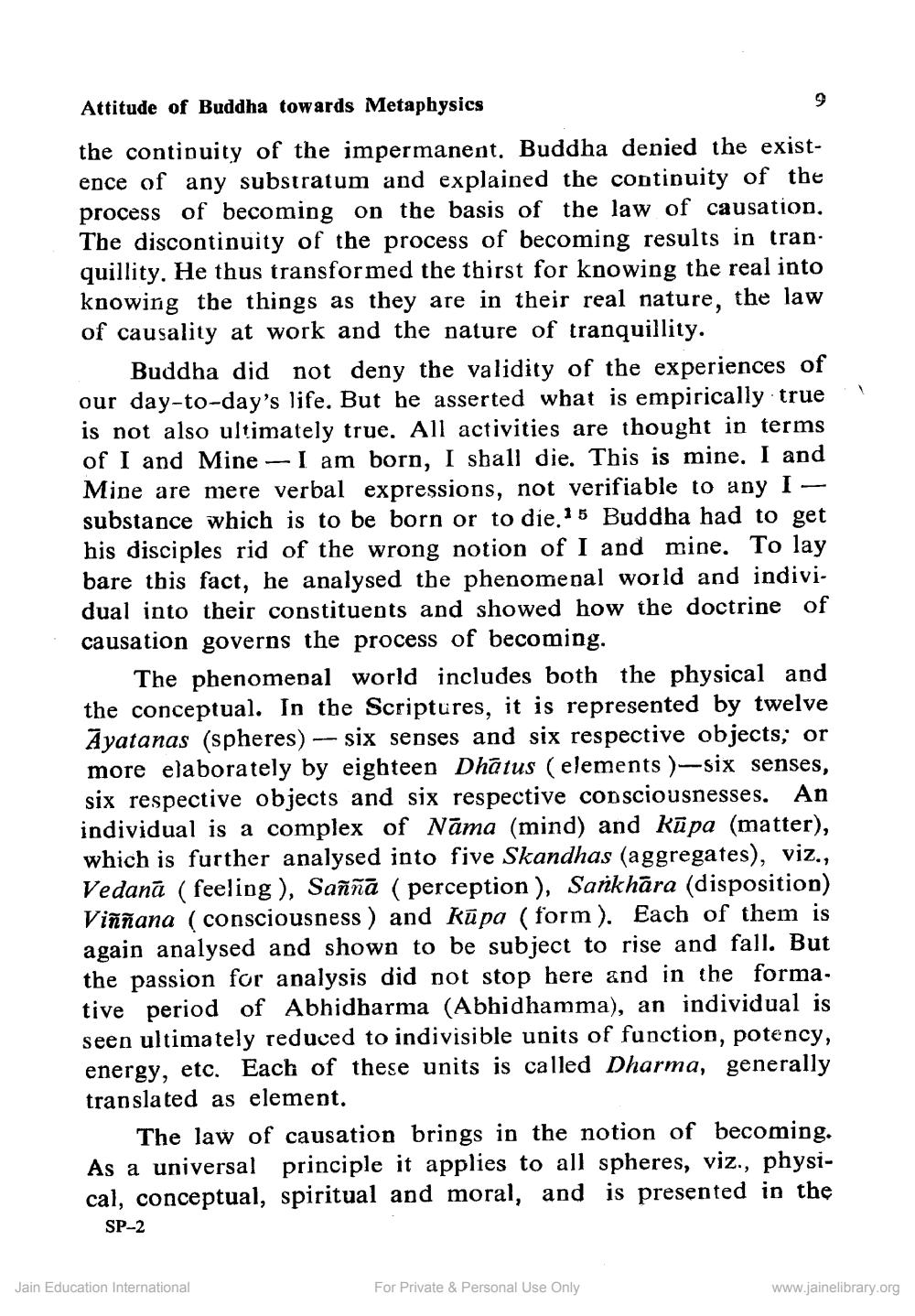________________
Attitude of Buddha towards Metaphysics
the continuity of the impermanent. Buddha denied the existence of any substratum and explained the continuity of the process of becoming on the basis of the law of causation. The discontinuity of the process of becoming results in tran quillity. He thus transformed the thirst for knowing the real into knowing the things as they are in their real nature, the law of causality at work and the nature of tranquillity.
9
Buddha did not deny the validity of the experiences of our day-to-day's life. But he asserted what is empirically true is not also ultimately true. All activities are thought in terms of I and Mine I am born, I shall die. This is mine. I and Mine are mere verbal expressions, not verifiable to any Isubstance which is to be born or to die.15 Buddha had to get his disciples rid of the wrong notion of I and mine. To lay bare this fact, he analysed the phenomenal world and individual into their constituents and showed how the doctrine of causation governs the process of becoming.
The phenomenal world includes both the physical and the conceptual. In the Scriptures, it is represented by twelve Ayatanas (spheres) - six senses and six respective objects; or more elaborately by eighteen Dhatus (elements)-six senses, six respective objects and six respective consciousnesses. An individual is a complex of Nama (mind) and kūpa (matter), which is further analysed into five Skandhas (aggregates), viz., Vedana (feeling), Saññā (perception), Sankhara (disposition) Viññana (consciousness) and Kūpa (form). Each of them is again analysed and shown to be subject to rise and fall. But the passion for analysis did not stop here and in the formative period of Abhidharma (Abhidhamma), an individual is seen ultimately reduced to indivisible units of function, potency, energy, etc. Each of these units is called Dharma, generally translated as element.
The law of causation brings in the notion of becoming. As a universal principle it applies to all spheres, viz., physical, conceptual, spiritual and moral, and is presented in the
SP-2
Jain Education International
For Private & Personal Use Only
www.jainelibrary.org




